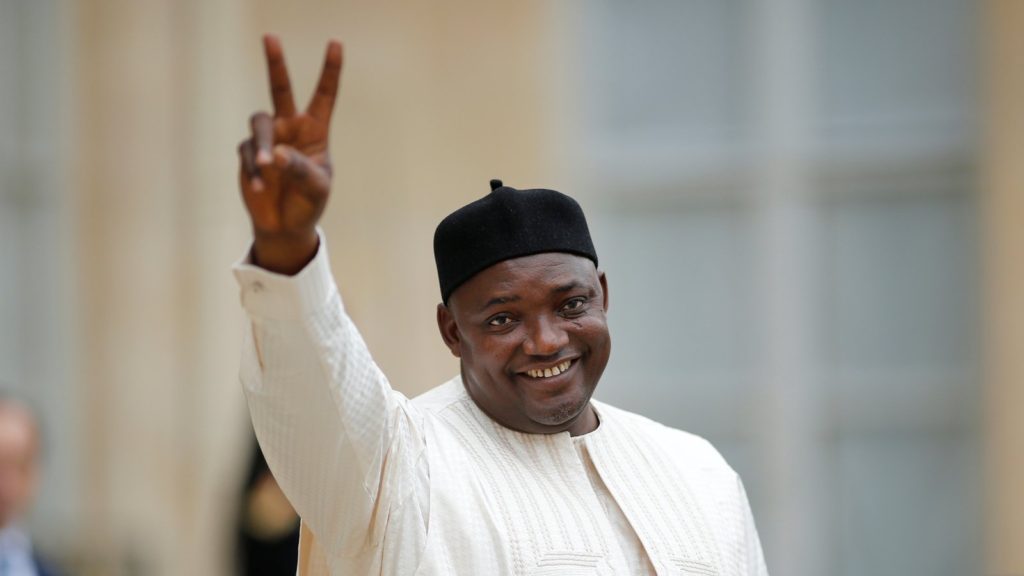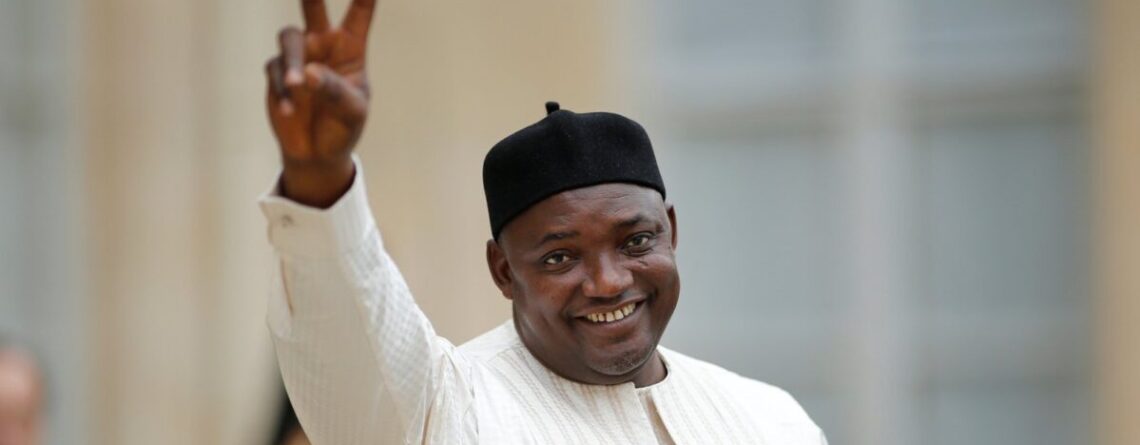Dangerous speech alert: Barrow threatens non-partisan public servants, likens them to pest

In the just concluded meet-the-people tour, the Gambian leader Adama Barrow has threatened to take a non-disclosed action against public officers who are claimed to be non-partisan in government. He likened them to pests. His comments constitute dangerous speech.
Context
The Gambian president conducts a constitutionally mandated tour at least twice every year. The tour is meant to see first-hand the situation across the country and engage with the people on government policies and programmes.
Section 222(15) of the 1997 Constitution gives the President of The Gambia the constitutional mandate to “… undertake a nation-wide tour at least twice a year in order to familiarise himself or herself with current conditions and the effect of government policies”.
President Barrow began the tour on November 20. According to the State House, he would preside over 18 joint community meetings and visit 21 development project sites. At a mass gathering held at Basse Mansajang on November 25th, the president made the following remarks which can be found in the 2:48 mins of the video.
What he exactly said
“There are public servants who say that they are not part of any political party. But that is not true. They belong to other political parties. If anyone tells you that they are politically neutral, write their names down because they are in the opposition. We recognise them and we are observing them one by one. The Public Service Minister is here to deal with them one by one. Those kinds of people are like that. As an example, it is just like how certain insects like ‘bukarrsidi’ (groundnut pest) get into groundnut bags and infest everything. And you cannot remove them from the groundnut unless you apply ‘pudarr’ (powder poison) to remove them from the groundnut. Now, the Public Service Minister is here and the kind of “Purdarr ” he has if he applies that on anyone it is your end if you are not careful.”
Why the statement is considered dangerous
President Barrow’s comments may not fit the strict definition of hate speech, as outlined by the UN, since they are not explicitly targeted at any particular group characteristics. However, they may verge on the periphery of hate speech. The employment of animal metaphors to denigrate an ‘outgroup’ can be construed as hate speech in certain contexts. Numerous studies show that such descriptions or comparisons have the potential to dehumanise the ‘outgroup’ or opponents, thereby increasing the likelihood of endorsing harm or violence against them. The case of Rwanda where Tutsis were dehumanised as ‘cockroaches’ or the Nazi portrayal of the Jewish people as ‘rats’ is often cited as examples for why animalistic slurs should be considered hate speech.
What is clear though is that President Barrow’s comments constitute dangerous speech as it has the potential to increase the risk of violence or discrimination against certain people of their membership or perceived membership in a particular political group.
While Section 169 protects civil servants against being ‘punished without just cause’, the General Orders, a code of conduct that guides the actions and behaviours of public and civil servants, safeguards the right of persons working in the government to hold political views and belong to political parties with specific conditions.
“Every Officer is entitled to his/her own political views, and may, if qualified, vote at elections. He/she may become a member of a political party or organisation, but may not accept any office, whether paid or unpaid, permanent or temporary, in any political party or organisation, nor may he/she make speeches, join in demonstrations or in any other way indicate publicly his/her support for any political party, organisation, person or policy, nor shall he/she be required to do so in the course of his/her duties. An Officer wishing to belong to an organisation which has both political and other objectives and is uncertain whether the organisation is a political organisation within the meaning of G.O. 03104, should seek advice from the Public Service Commission.”
Conclusion
President Adama Barrow should be measured in his remarks and conduct himself in ways that are exemplary and can unify the people of the country. He should avoid any statement that can encourage people to act illegally and or irresponsibly, especially in running the affairs of the country.
This dangerous speech alert was published with the support from the UN Peacebuilding Fund through UNESCO Dakar office under the project: countering hate speech and promoting responsible digital citizenship in The Gambia. The project is being implemented by the Open Media Centre (OMC), the publisher of Malagen.

